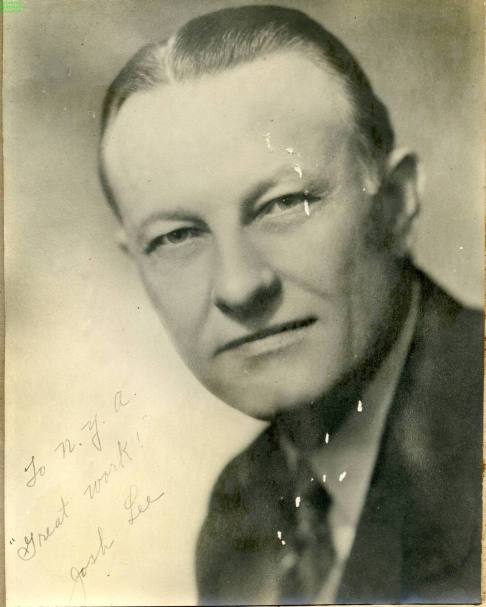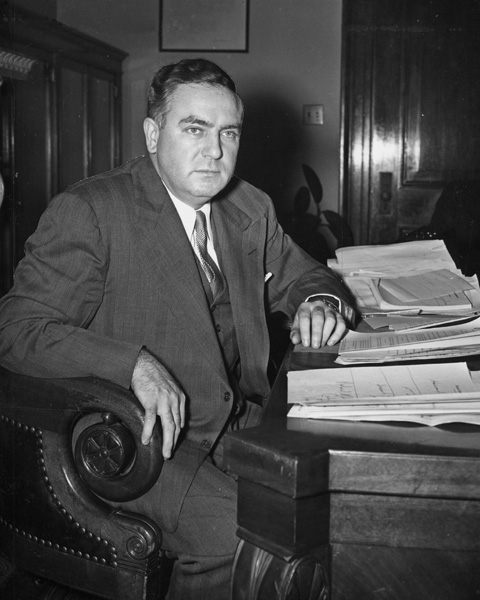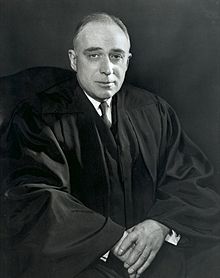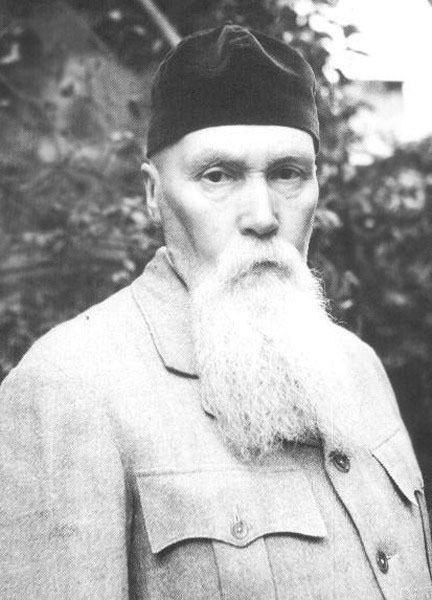The Candidates Weigh In
The Candidates Weigh In
The decision over whether or not to confirm Tuttle became an object of controversy on the campaign trail for the Progressives seeking the nomination. Initially, several of the more moderate Senator candidates such as Joshua Lee of Oklahoma, Philip LaFollette of Wisconsin, and Brien McMahon of Connecticut expressed an interest in considering Tuttle's nomination.
Audio of Senator Joshua Lee: "I hope that every Senator, regardless of party, will judge Tuttle on his own qualifications, and not simply vote for him, or for that matter against him, based on partisan affiliation."
Audio of Senator Philip LaFollette: "I will have to meet with Judge Tuttle and hear his view of constitutional law before I can decide. I would not categorically rule out voting for someone before the hearings, no, of course not."
Video of Senator Brien McMahon. He is sitting in front of a mural of nuclear explosions with a smiling family in the clouds: "I do not think that we should make the Supreme Court vote a sort of 'litmus test' if you will, whereby this is the only issue which they should be judged for. While I am unlikely to vote for someone with a record on labor like Tuttle, I would not seek to expel anyone who did so from the Progressive Caucus."



These words gave hope to President Taft that perhaps the Senate would overwhelmingly confirm Tuttle, as was the norm.
Fake Robert Taft voice, reading a memo to Buffett: "Perhaps the Progressives and their allies shall be reasonable in this regard... Surely they understand the American people will tolerate no obstruction."
However, the more radical candidates quickly turned up the heat. While Supreme Court Justice William O'Douglas declined to comment on an issue involving the court, the other radical candidates hit Judge Tuttle for his record and called for him to be blocked.
Audio of Senator Claude Pepper: "Tuttle's confirmation will mark the destruction of the legacy of Floyd Olson and Fiorello LaGuardia!
Audio of Senator Henry Wallace: "I think we should give Judge Tuttle a fair hearing, but I just simply cannot see how any Progressive could vote to confirm him."
Video of Elmer Benson at a rally, giving a furious speech: "If the reactionary, racist conservatives regain a majority on the court... human rights will be trampled, progress will be overturned, and democracy will be in danger. Rivers of blood will flow on the streets of this country if such a horror occurs... We cannot, will not, let that happen!"
Video of Glen H. Taylor, standing next to Paul Robeson and other radical black leaders: "We cannot allow Judge Tuttle merely following the progressive direction of the Supreme Court to be seen as evidence that he is anything other than another conservative judge. This conservative philosophy represents a threat to all workers, of every race and ethnicity!"
Historian Martin Luther King Jr., PhD: "There was a real divide in the Afro-American community, between the more liberal leaders, such as my father, who were generally friendly with President Taft and opposed to obstructionism, and more radical leaders like Paul Robeson, who strongly opposed Taft. While many of the more liberal leaders believed that the radicals were hurting the community and that their ideological extremism made them an enemy to the good in the name of the perfect."
Paul Robeson Jr.: "Taft hadn't dissolved Jim Crow in private places in the South. Many Commonwealth or American state governments still supported racism. And across America, racial discrimination persisted. We needed more than defending the status quo in 1948. We needed radical action. Action no conservative would give."
Martin Luther King: "The radicals had many legitimate grievances with the Taft administration. President Taft proved to be slow moving on civil rights, reluctant to use state action to enact his private ideals, and unwilling to prioritize civil rights. While many radical groups were controlled by Soviet-aligned Communists, they attracted the support they did due to the failures of the Taft Administration."
Historian Marsha Spielberg, PhD: "The already nationalized nature of political news was even more apparent in 1948, as it became next to impossible for people who were not senators to gain the media attention to run. The only non-Senator to be a Progressive candidate, Justice O'Douglas, found that declining to comment on matters of the Supreme Court, while ethical, would doom his poll numbers."
Historian Kyle Anderson, PhD: "I think it's necessary to note that while most of the Progressive candidates were Senators, that many had other experience. Three were former governors and two were cabinet officials. Only Taylor and Lee were truly committed long-term Senators."
The pressure of presidential politics led to LaFollette, Lee, and McMahon issuing subsequent statements with stronger language against Tuttle.


